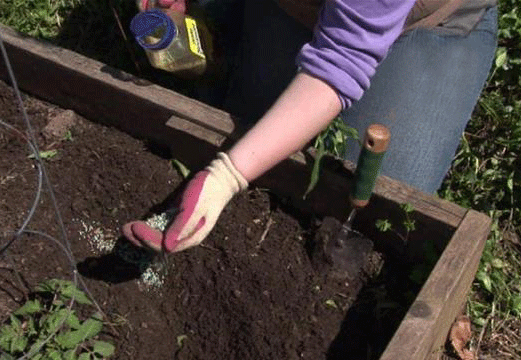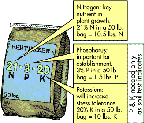Fertilizers

Fertilizer is any material of natural or synthetic origin (other than liming materials) that is applied to soils or to plant tissues (usually leaves) to supply one or more plant nutrients essential to the growth of plants.
While a balanced fertilizer of 5-10-5 probably won’t hurt most plants, some plants need high doses of one element over another.
Whatever you do, don’t go crazy with the fertilizer. Too much fertilizer is worse than none at all. While most plants can do just fine with minimal fertilizer, too much of the good stuff can burn roots and even kill plants.
Some plants, like conifers, don’t respond well to excessive nitrogen. Be sure to ask us if you have any questions about which fertilizer to use.
As a general rule, the slower the plants habit of growth, the less fertilizer it needs. Plants that are producing fruit, or plants that that have a fast growth habit, generally need more fertilizer.
It’s critical to read package labels and understand the proper fertilizer for your flowers, vegetables, trees, shrubs, houseplants or lawn. The label on all fertilizer bags is required to show the percentage by weight of nitrogen, available phosphate and soluble potash. This is called the guaranteed anaylsis of the fertilizer.
- The first number is Nitrogen (N)
- The second number is available Phosphate
- The third number is soluble Postash
What do these ingredients do?
Nitrogen
As a primary nutrient in fertilizers, plants require nitrogen in comparatively large amounts. In fact, nitrogen is the nutrient, or fertilizer component, that plants demand the most out of all 16 essential plant nutrients.Nitrogen is of vital importance to the physiology of plants. It plays a critical role in the process of photosynthesis by which plants manufacture their own food from sunlight. Further, nitrogen is essential in plants’ manufacturing of proteins and in virtually every other aspect of plant physiology. Plants that are deficient in nitrogen grow poorly and develop yellowing leaves.
Phosphorus
Phosphorus is one of the three macronutrients essential to the healthy development of plants, playing a major role in the process of photosynthesis, which transforms solar energy into chemical energy. Phosphorus promotes proper plant maturation and allows growing plants to withstand stress. It is also encourages development of healthy blooms and root growth.
Postash
Potash fertilizer is used by gardeners all over the world. It keeps plants healthy by allowing nutrients and sugars to move throughout the plant, helping to keep it stress and disease free. Potash fertilizer is therefore an essential ingredient in your for the garden for producing good crops of vegetables and beautiful flowers.Using a potassium fertilizer such as potash helps to increase the use of other nutrients in the plant and promotes root growth. It also helps to cope with drought situations and increases the plant’s ability to survive in frosty conditions.
Our Fertilizers

When to apply Nitrogen
Denitrification can occur if temperature and humidity are high. Denitrification is the process where nitrogen is converted by soil bacteria to a gaseous state and released into the atmosphere before the plant has time to absorb it and use it. To avoid denitrification, apply fertilizer on a cool day or right before an expected rainfall.
Master Nursery

EB Stone Organic
Custom formulated organic plant food targeted for families of plants and very friendly to the environment.

E. B. Stone Sure Start 4-6-2
Contains Blood Meal, Feather Meal, Bone Meal, Dried Chicken Manure, Bat Guano, Alfalfa Meal, Kelp Meal, Potassium Sulfate, Humic Acids and soil microbes including mycorrhizal fungi.

Maxsea

MAXSEA 16-16-16 All purpose fertilizer

Osmocote

